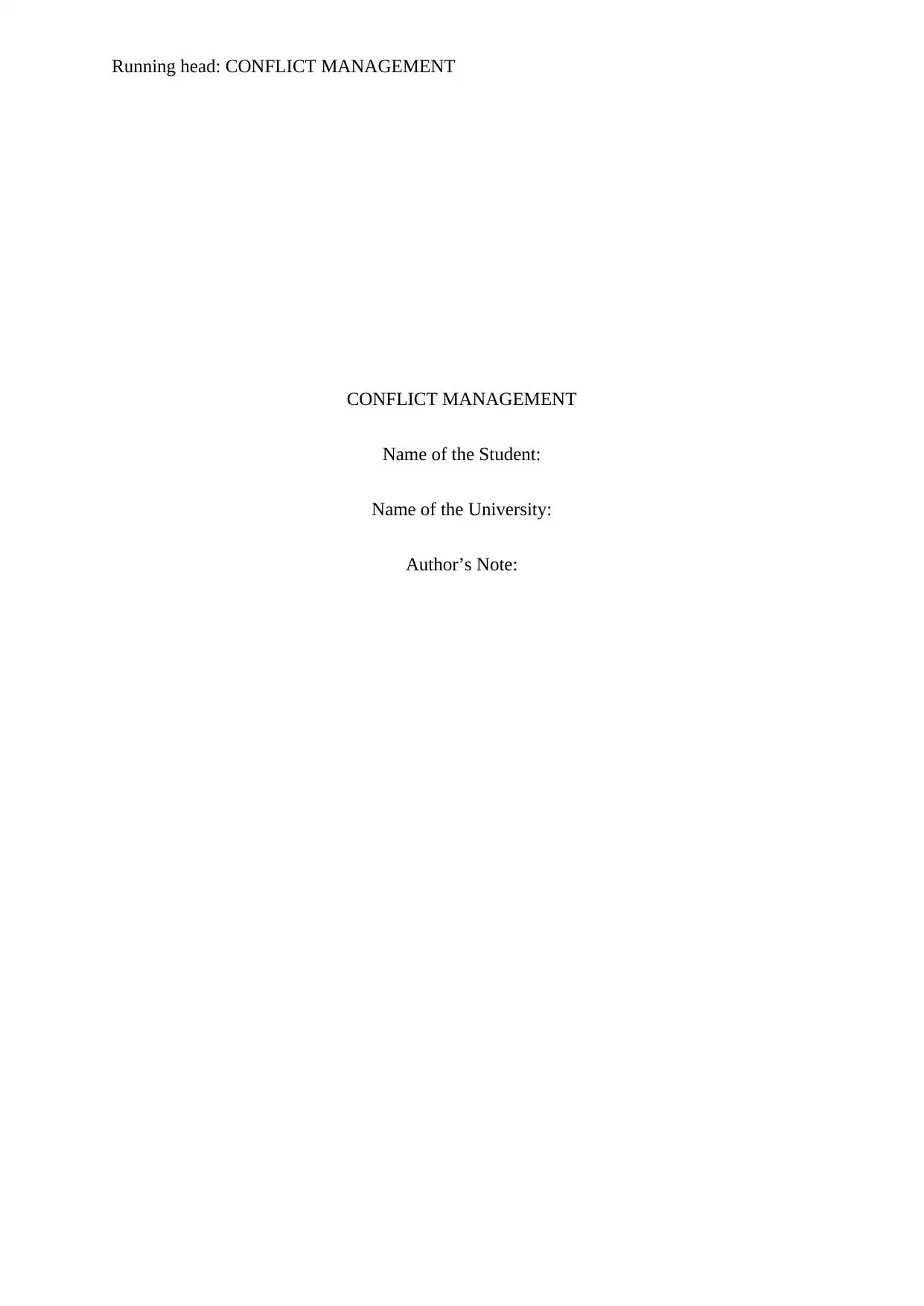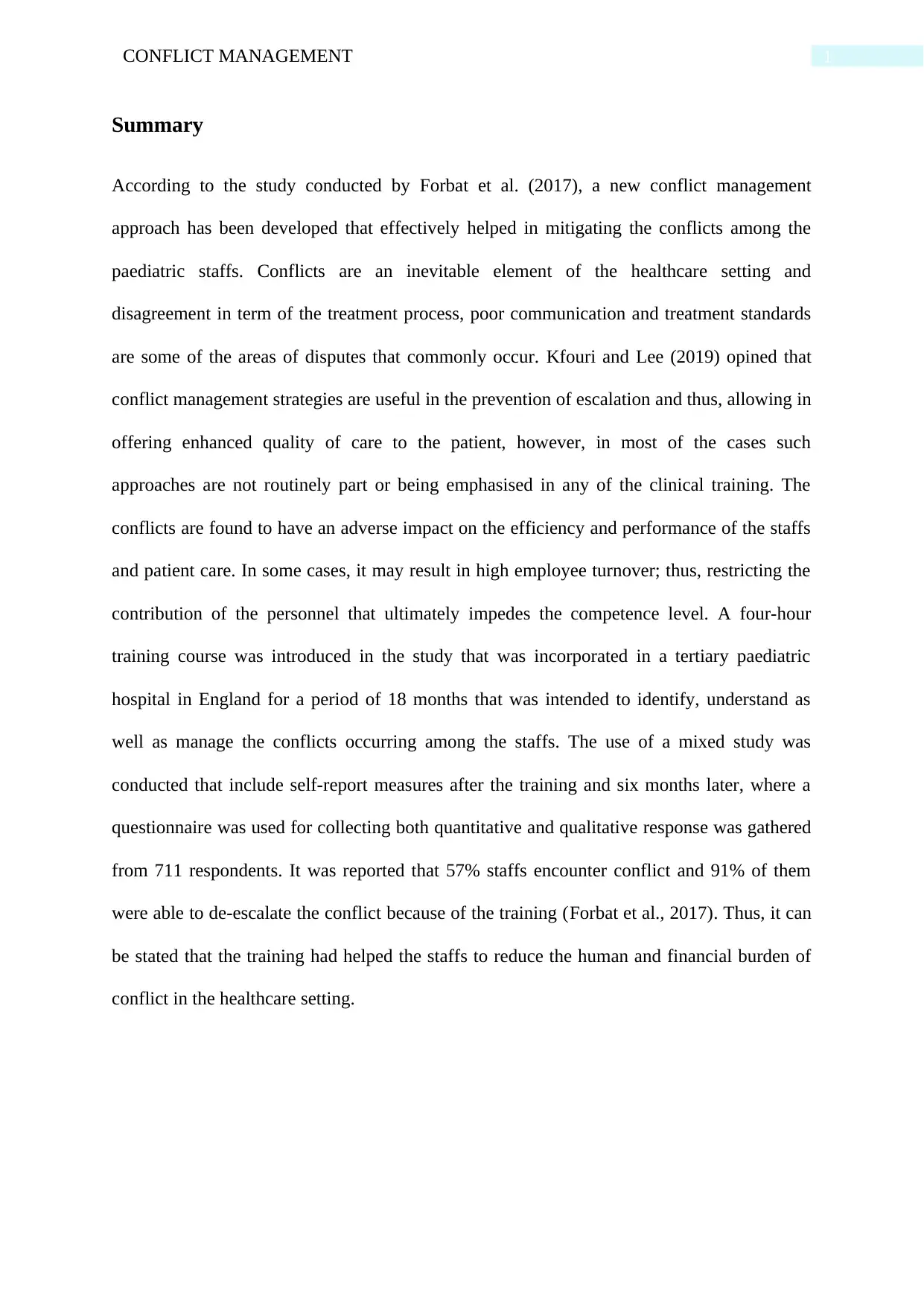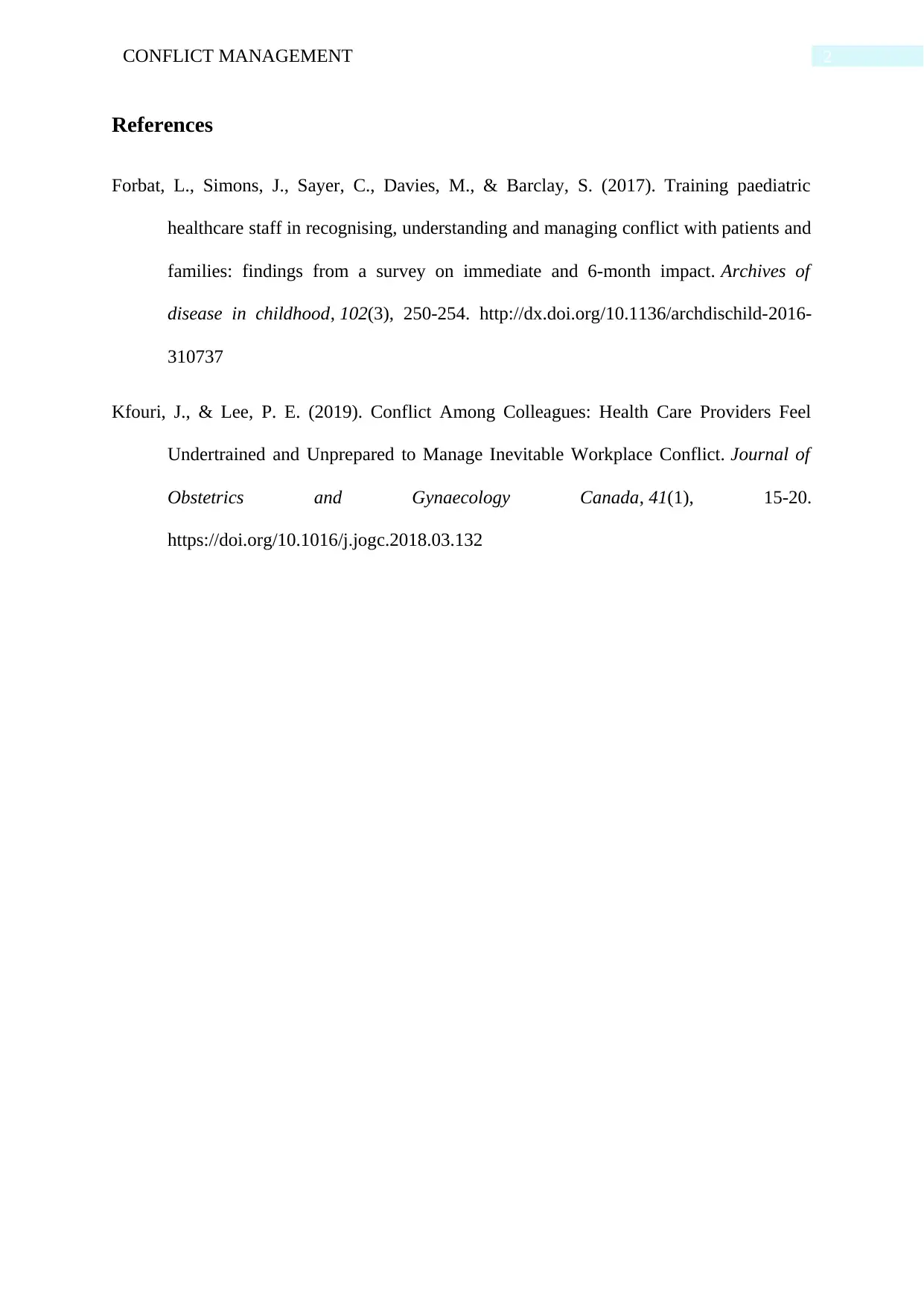Conflict Management Report: Training and Conflict Resolution
VerifiedAdded on 2022/09/26
|3
|452
|24
Report
AI Summary
This report analyzes a study on conflict management in healthcare settings, specifically focusing on a training program implemented in a tertiary paediatric hospital. The study investigated the impact of a four-hour training course on conflict resolution among staff, revealing that 57% of the staff encountered conflict and 91% were able to de-escalate the conflict due to the training. The research highlights the importance of effective conflict management in mitigating workplace disputes and improving patient care. The study emphasizes the benefits of training in reducing both human and financial burdens associated with conflicts within the healthcare environment. The report references the study's findings on the effectiveness of conflict management training in a healthcare context. The report also references the study's findings, highlighting the reduction in conflict and improved patient care as a result of the training, thus emphasizing the practical significance of the conflict management strategies in healthcare. The report references two key sources, Forbat et al. (2017) and Kfouri and Lee (2019), to support its findings and arguments.
1 out of 3










![[object Object]](/_next/static/media/star-bottom.7253800d.svg)